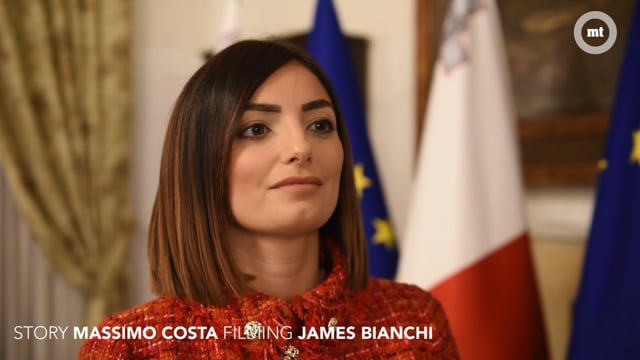[WATCH] Cremation law to be in place by Easter, will cost less than traditional burial
Labour MP Rosianne Cutajar, who spearheaded the drawing up of the cremation Bill, said it would be down to personal choice where ashes of loved ones are kept


Parliament is set to discuss a bill which will legalise cremation in Malta, with the law regulating the practice expected to be in place around Easter time this year, or shortly afterwards.
The discussion in Parliament will be preceded by a public consultation process on the matter, which starts today and ends on 29 March.
Labour MP Rosianne Cutajar, who spearheaded the law, said that cremation is available all over Europe, but there is to date no regulatory framework for it in place in Malta.
She said that cremation was a personal choice, which people might opt for due to various reasons, and that there has been considerable demand for it locally.
Once the law - to which cabinet members have already lended their full support - goes through Parliament, a tendering process will start for the building of a crematorium.
Deputy Prime Minister Chris Fearne said that, in 2015, the Planning Authority had published a policy on cemeteries, which included guidelines on cremation. Following this, four local firms had expressed interest in constructing crematoria, but since there was no legal framework in place, their applications had to be withdrawn, Cutajar went on to elaborate.
In November 2017, parliament's social committee started discussing the matter and putting together a draft law, which led to the launching today of a consultation process on the cremation Bill's proposals.
The draft law will be presented as a private members' bill by Cutajar, and a parliamentary discussion will start in the coming weeks.
Cutajar said that cremation is an environmentally friendly alternative to burial, which would lessen the need for new cemetary land. "It will then be the choice of the person themselves, or their families, where their ashes will be located. They can be kept either at a sacred site - as is the practice of the Church - or at another location, depending on personal choice."
The Labour MP also underlined the accessibility aspect of cremation, which will be relatively cheaper than a traditional burial, that sometimes also involves the considerable cost of purchasing a burial plot.
She said, moreover, that some people had been opting to carry out cremations of their loves ones abroad, which was a very expensive undertaking.
"Cremation dates back a number of centuries and is available in every other European country," she said, "We believe we too should have this option open, and recent research shows thay a third of Maltese people would consider alternatives to a traditional burial."
According to the 2015 PA policy, crematoria should be built on the site of a disused or currently in use cemetery.
The proposed law will make cremation legal, will set criteria for the application for cremation and will provide for the possible means of storage or disposal of the ashes.
It will also lead to the establishing of the responsible entity which will issue cremation licenses and put in place the groundwork for registering cremations.






.jpg)
















